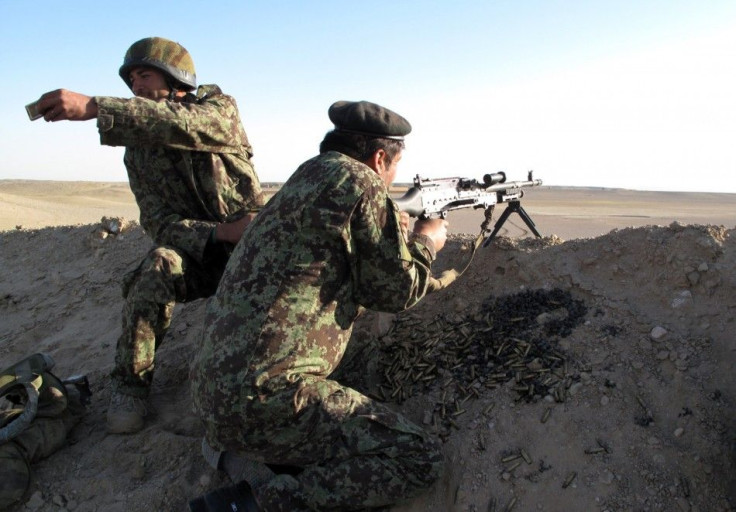Afghanistan Killings, Quran-Burning Test Obama's Exit Strategy

In a speech last June outlining his timetable for withdrawing U.S. troops from Afghanistan, President Barack Obama vowed the move would come at a time the United States found itself in a position of strength in that country.
Obama underscored how the additional 30,000 soldiers he had ordered into Afghanistan early in his presidency had helped decimate al Qaeda, strike back at a resurgent Taliban and foster a stable environment in which local security forces were growing in size and capability. The United States couldn't remain in Afghanistan indefinitely, Obama said, but it would do its best to ensure it was leaving behind a peaceful and stable country.
What we can do, and will do, is build a partnership with the Afghan people that endures -- one that ensures that we will be able to continue targeting terrorists and supporting a sovereign Afghan government, he said.
Afghan Lawmakers 'Run Out of Patience'
The reported killing by a U.S. soldier of 16 civilians in southern Afghanistan over the weekend -- coming soon after Americans ignited outrage by burning Qurans and other holy texts -- threatens to unravel Obama's narrative. Afghan lawmakers said they have run out of patience with the arbitrary actions of foreign forces, and President Hamid Karzai -- a key U.S. ally -- said the weekend slaughter cannot be forgiven.
We seriously demand and expect that the government of the United States punish the culprits and try them in a public trial before the people of Afghanistan, a resolution by the lower house of Afghanistan's parliament said.
Sources told the BBC that the killings could threaten a U.S.-Afghan agreement, and tribal elders called for an end to the night raids by Americans that have long been a source of locals' distrust and antipathy.
Talks With Taliban In Jeopardy?
The deadly attack also could upend tentative efforts to engage the Taliban in some sort of reconciliation dialogue. In his June speech, Obama pointed to the necessity of a political settlement involving the Taliban -- something Secretary of State Hillary Clinton has also stressed -- and before the Quran burnings Karzai said the United States and Afghanistan had begun pursuing talks.
But the Taliban -- the Islamic militant group that ran Afghanistan until being ousted in the U.S. invasion of late 2001 -- appears less likely to cooperate with the United States after the Quran burnings and the weekend killings. The Taliban has already sworn to exact retribution from the invaders and the savage murderers for every single martyr.
Just as the soldier's rampage has stoked anti-American sentiment, the earlier Quran burnings revealed simmering frustrations with occupation troops as well as the fragility of the U.S. partnernship with Afghan security forces. In the wake of the burnings, at least six Americans were killed by Afghans they had worked alongside, including by a man wearing an Afghan army uniform.
The two episodes risk a loss of trust in the Americans at a crucial time, and a U.S. military official told the New York Times that the Taliban could benefit.
The fear is that all these incidents, taken together, play into the Taliban's account of how we treat the Afghan religion and people, the official said. And while we all know that's a false account -- think how many the Taliban have killed, and never once taken responsibility -- it's a very hard perception to combat.
--
© Copyright IBTimes 2024. All rights reserved.




















